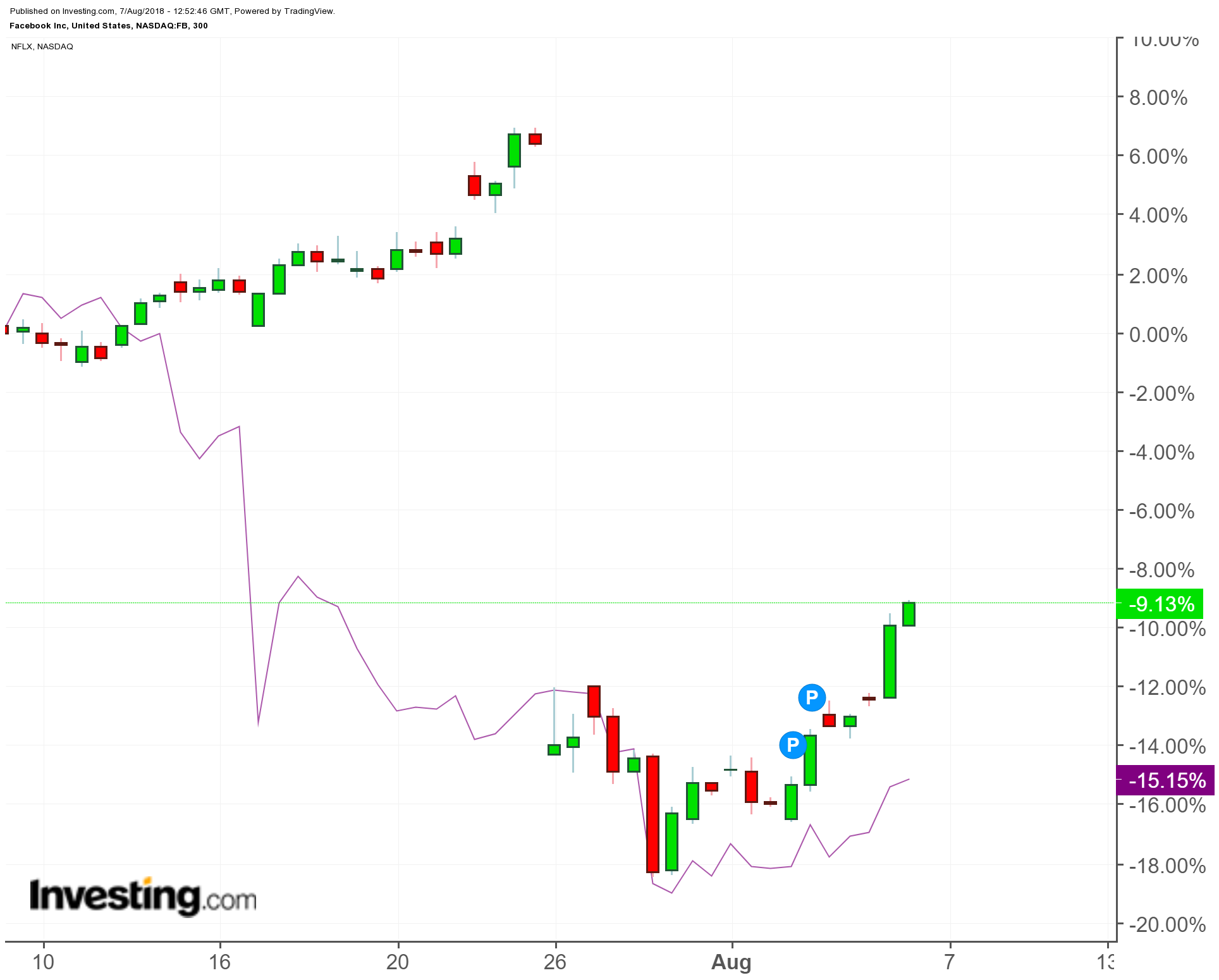For technology investors, this is one of the most challenging times to remain faithful.
After producing triple-digit gains during the past five years, a few tech giants are showing signs of peaking, prompting some analysts to call an end to this unprecedented bull run.

Strategists at Bank of America recommend shorting all FAANG stocks: Facebook (NASDAQ:FB), Apple (NASDAQ:AAPL), Amazon (NASDAQ:AMZN), Netflix (NASDAQ:NFLX) and Google parent Alphabet (NASDAQ:GOOGL). They cited rising interest rates in the U.S., which could drain liquidity from the economy and hurt the share values of these high flyers.
These calls carry some weight. Facebook and Netflix, the two titans that were among the top three gainers in FAANG during the past five years, plummeted after disappointing second-quarter results that raised doubts about user growth and the lofty valuations these names command.
Investors took these two giants to the woodshed. On July 26, Facebook lost $119 billion in market cap - the biggest one-day loss in history - after it reported that revenue rose 42% in the second quarter against the expectations of 43% growth. The company also warned on future sales growth.
Netflix, on the other hand, cut its stock gains for the year to 70% from more than 100% after missing the Q2 subscriber growth forecast by a million users.
What haunts investors after these catastrophic misses is wondering whether they should paint all the members of FAANG with the same brush and exit this trade altogether. The flip side is that the latest slump proves to be as short-lived as the ones we saw earlier this year, which cost FAANG bears heavily.
We think betting on FAANG as a group is not a prudent strategy anymore and risk-averse investors are better off by pursuing a selective approach.
Facebook Or Netflix? Know Your Investing Style
After the Q2 earnings debacles, Facebook and Netflix present a different risk-reward equation. These stocks aren’t bad buys for patient investors willing to ride out this volatility. But Facebook and Netflix are facing different challenges and each stock should be traded on its merits.
For Facebook, the biggest challenge is to convince investors that while the days of easy growth are over, it still owns the most-prized digital properties that advertisers love. WhatsApp, Messenger and Instagram have more than 1 billion users each. The entire Facebook suite of products has 2.5 billion monthly users.
Among these apps, Instagram is already contributing significantly to Facebook’s revenue and that trend will grow as CEO Mark Zuckerberg tries to make up for the slowing growth on its main social platform.
Netflix, on the other hand, has no clear competitor in the streaming video category, where there is a huge global opportunity. Closest rival Hulu just passed 20 million subscribers in May and has little international appeal compared with Netflix. Netflix has about 130 million global subscribers.
Domestic subscriber growth will peak at some point. But global subscriber growth still has a lot of room to run, especially as Netflix has started to invest in local content to target massive markets such as India.
It’s likely Facebook diverges from the FAANGs and underperforms in the next six to 12 months as it invests heavily to make its platform acceptable to regulators and politicians following Cambridge Analytica Scandal and allegations of Russian manipulation in the last U.S. presidential election. But that divergence should be taken as a buying opportunity in a company that reported sales growth averaging 50% during the past 10 quarters and has a lot of ammunition to stage a quick turnaround and exceed expectations.
Netflix shares should resume their upward journey quicker than Facebook. For high-octane growth stocks, such as Netflix, there is always a risk of a bumpy ride and we don’t see the latest disappointment translating into a trend.
